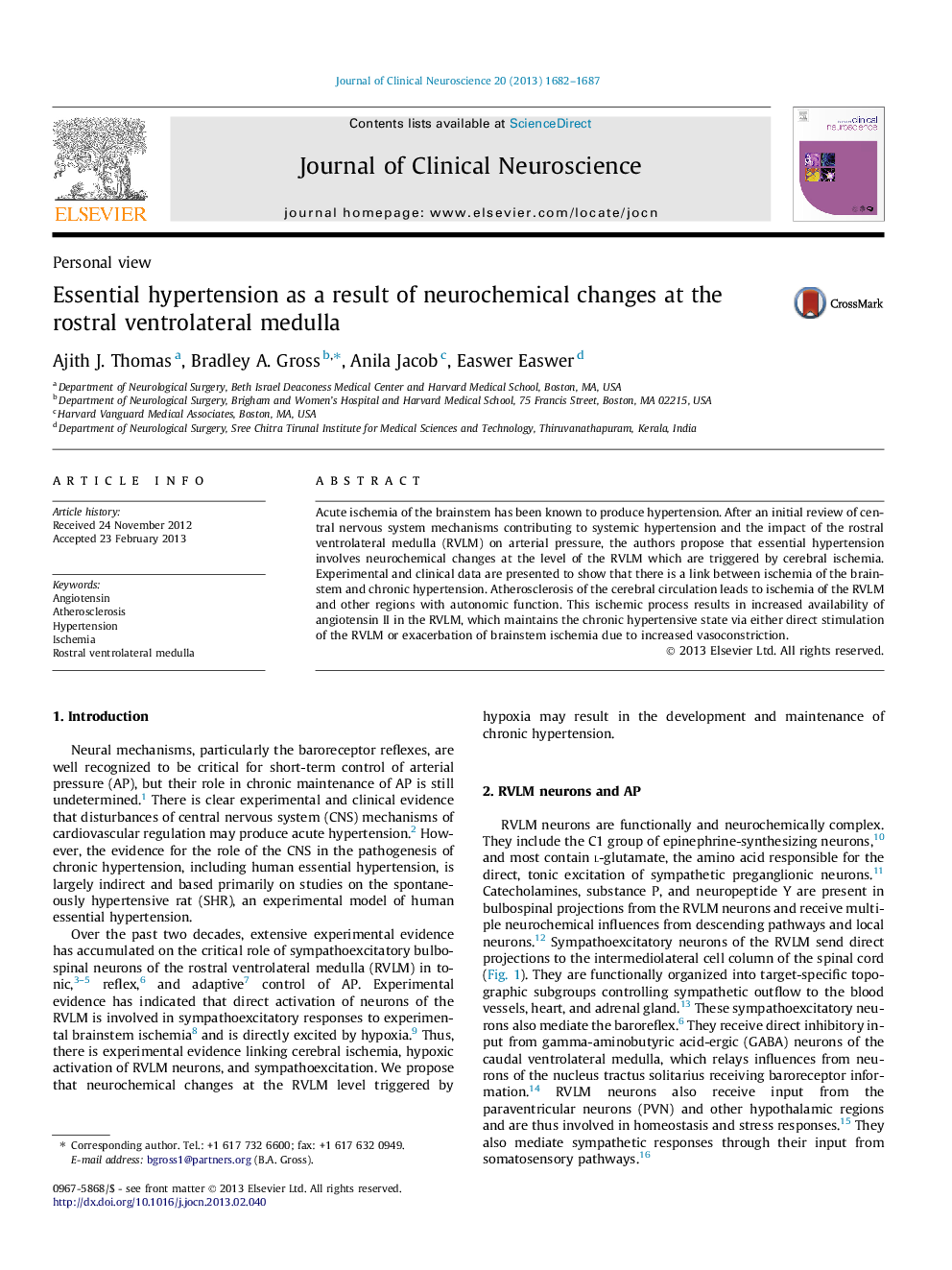| Article ID | Journal | Published Year | Pages | File Type |
|---|---|---|---|---|
| 3059917 | Journal of Clinical Neuroscience | 2013 | 6 Pages |
Acute ischemia of the brainstem has been known to produce hypertension. After an initial review of central nervous system mechanisms contributing to systemic hypertension and the impact of the rostral ventrolateral medulla (RVLM) on arterial pressure, the authors propose that essential hypertension involves neurochemical changes at the level of the RVLM which are triggered by cerebral ischemia. Experimental and clinical data are presented to show that there is a link between ischemia of the brainstem and chronic hypertension. Atherosclerosis of the cerebral circulation leads to ischemia of the RVLM and other regions with autonomic function. This ischemic process results in increased availability of angiotensin II in the RVLM, which maintains the chronic hypertensive state via either direct stimulation of the RVLM or exacerbation of brainstem ischemia due to increased vasoconstriction.
